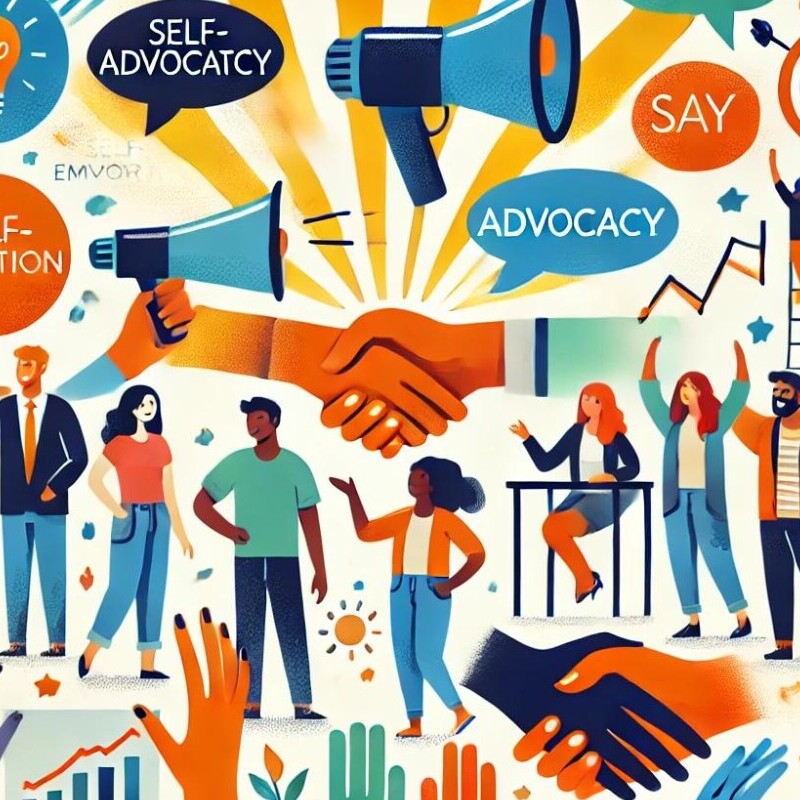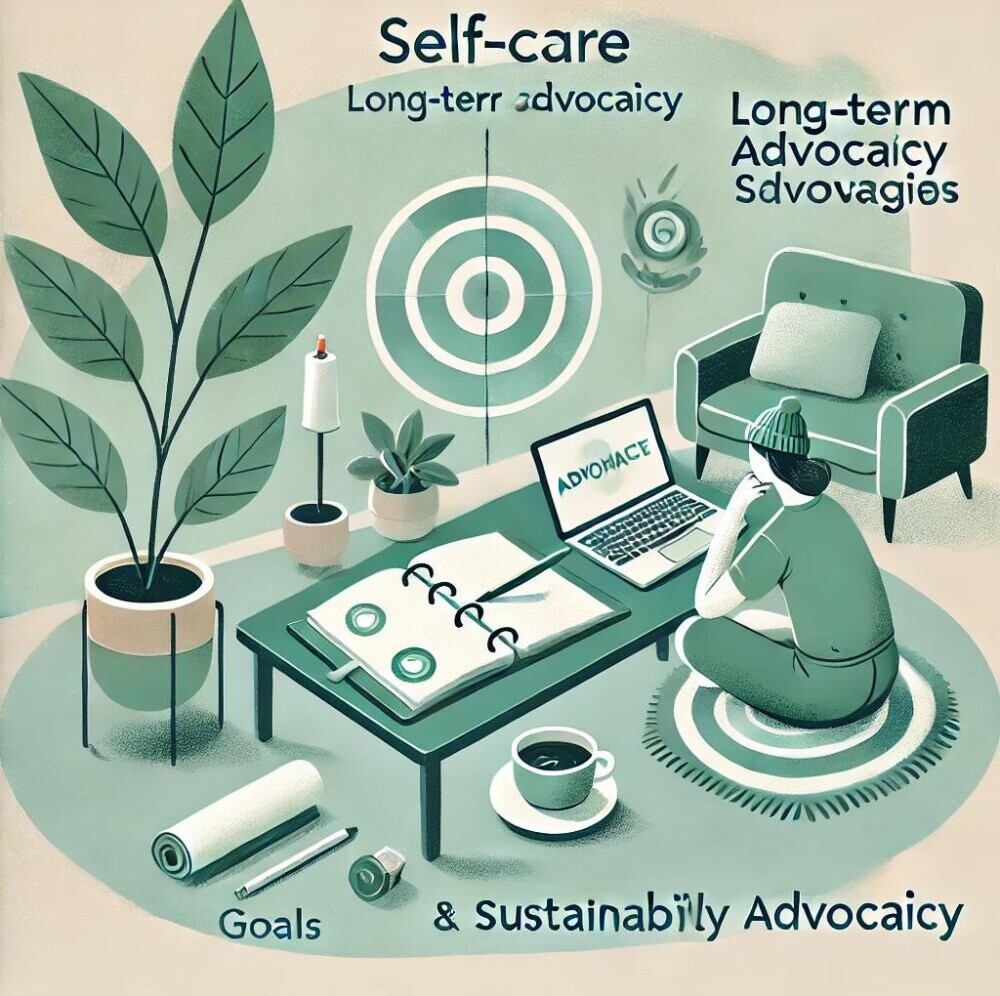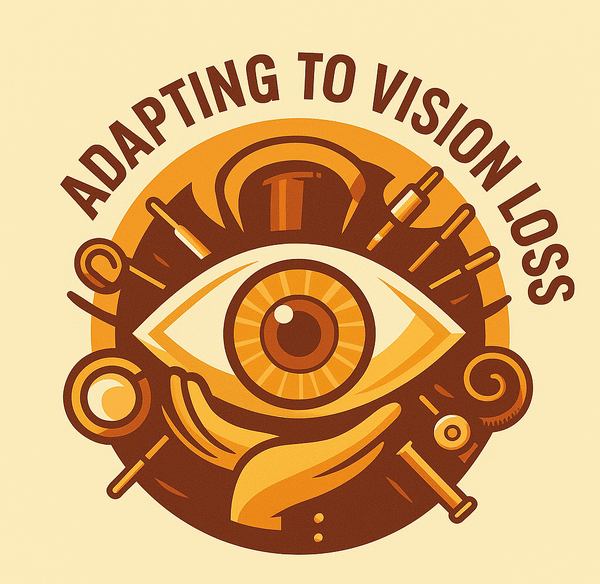 Advocacy is a powerful tool for creating change, whether in your own life or on behalf of others. It begins with understanding what self-advocacy truly means and how it can empower you to take control of your circumstances. Here, we’ll explore the essential steps to becoming a strong advocate for yourself and others, from building confidence to navigating professional settings and beyond.
Advocacy is a powerful tool for creating change, whether in your own life or on behalf of others. It begins with understanding what self-advocacy truly means and how it can empower you to take control of your circumstances. Here, we’ll explore the essential steps to becoming a strong advocate for yourself and others, from building confidence to navigating professional settings and beyond.
Understanding Self-Advocacy
Self-advocacy begins with knowing what it truly means. At its core, it’s about speaking up for yourself, expressing your needs, and ensuring your voice is heard. Importantly, self-advocacy isn’t a one-time action but an ongoing process that fosters personal freedom and autonomy.
One of the first steps in self-advocacy is knowing your rights. Whether legal or personal, understanding the boundaries you are entitled to helps you stand firm when advocating for yourself. When you know what you deserve, you’re better equipped to make sure those rights are respected.
Personal barriers like fear and self-doubt often stand in the way of effective advocacy. Tackling these barriers is essential. Embrace your worth, and take the time to build the confidence needed to express your needs. Remember, confidence isn’t an innate quality—it grows with practice. Start by speaking up in small ways, and over time, this will help you develop the strength to advocate when it matters most.
Developing Effective Communication Skills
Effective advocacy hinges on clear and meaningful communication. This includes not only expressing your needs but also actively listening to others. Listening attentively demonstrates respect and promotes mutual understanding, which is key to productive discussions.
Using “I” statements is a particularly effective technique. By focusing on your own feelings and experiences, you minimize blame and keep conversations constructive. For example, saying, “I feel frustrated when meetings run late,” is more productive than accusatory remarks like, “You’re always making meetings run late.”
Adapting your communication style to your audience is another critical skill. Whether you’re speaking to peers, supervisors, or a larger group, tailoring your message to their perspectives and priorities can lead to better outcomes. Take the time to understand their interests and concerns so you can adjust your approach accordingly.
Refining both verbal and non-verbal communication skills takes time and practice. Consider participating in role-playing exercises to improve these skills. Pay attention to your tone, body language, and facial expressions, as these often communicate as much as your words do.

Navigating Advocacy in Professional Settings
Advocating for yourself in the workplace can feel challenging, but it’s an essential part of professional growth. Start by identifying allies who share your values and can support your cause. These allies might be colleagues, supervisors, or mentors outside your organization.
Understanding your organization’s policies and procedures is also crucial. Familiarize yourself with the rules and processes that govern your workplace so you can navigate them strategically. This ensures your advocacy efforts align with established protocols.
When presenting your case, assertiveness balanced with respect is key. Clearly communicate your needs while showing empathy for others’ perspectives. This approach fosters collaboration and builds an environment of mutual respect.
Conflicts and disagreements are inevitable, but handling them professionally is a vital skill. Stay calm, listen actively, and focus on finding solutions rather than “winning” the argument. This not only resolves the immediate issue but also builds your reputation as a fair and reliable advocate.
Becoming a Champion for Others
Advocating for others requires awareness and empathy. Start by recognizing when someone needs support and determining the best way to assist without overshadowing their voice. Effective advocacy amplifies others’ voices rather than replacing them.
To raise awareness about broader issues, consider strategic actions like sharing resources, hosting discussions, or using social media to highlight important causes. Amplifying these messages can increase their impact and inspire others to get involved.
Collaboration is a powerful tool in advocacy. Partnering with organizations or community groups can magnify your efforts and bring diverse perspectives and solutions to the table. Working together strengthens the overall impact of advocacy initiatives.
Mentoring plays a vital role in empowering others. By sharing your experiences, offering guidance, and encouraging others to develop their own advocacy skills, you contribute to a cycle of empowerment that benefits the entire community.

Sustaining Advocacy: Long-Term Strategies and Self-Care
Advocacy is a long-term commitment, and sustaining it requires balance. Prioritize self-care to avoid burnout. Taking regular breaks, setting boundaries, and maintaining a healthy work-life balance ensures you have the energy to continue championing important causes.
Setting realistic goals is another essential strategy. Clearly outline what you aim to achieve and track your progress. This not only keeps you focused but also motivates you by showcasing tangible achievements.
Utilize available resources and support networks to enhance your advocacy efforts. Seek out training opportunities, tools, and communities that align with your goals. Engaging with these resources can provide new insights and strategies for more effective advocacy.
Finally, staying informed is crucial for keeping your advocacy efforts relevant. Regularly educate yourself about changes in laws, policies, and advocacy techniques. This continuous learning process sharpens your approach and ensures your work remains impactful.
Conclusion
For more information or to become involved you could contact the American Foundation for the Blind (AFB) or the National Federation of the Blind (NFB), just two of the many resources.
Advocating for yourself and others is a skill that evolves over time. By building confidence, developing effective communication skills, and navigating challenges with professionalism, you can become a powerful advocate. Remember, advocacy is not just about achieving outcomes but also about empowering yourself and others to speak up, take action, and create meaningful change.
